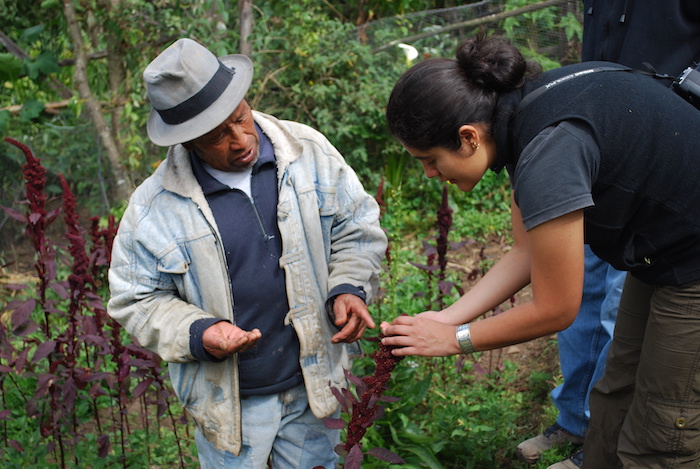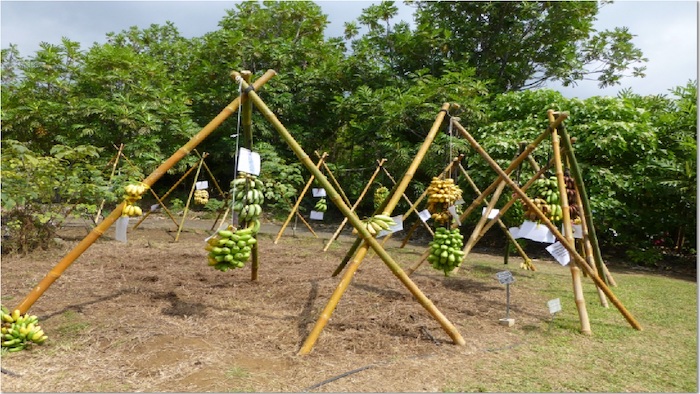Researchers and farmers across the USA are teaming up on science. The aim is to learn more about climate resilience on the farm by tracking and supporting farmers’ experimentation and practice. First things first: building a network and finding out what to measure together.

Elizabeth and Paul Kaiser are farmers in California, USA. They are two of many food producers across the globe who have a proven track record as innovators, researchers, and educators in their fields.
As small scale farmers running a biodiverse and economically successful agricultural business, they are exploring meaningful solutions to the climate challenges currently threatening the future of their farm, and more broadly, our food systems.
Rainfall is highly variable in California and farmers are noticing more and more climate extremes as a result of climate change. Paul describes his experience: “The unique thing about California is that while they say we have an average rainfall, California almost never gets its average. We’re in an unusual place in that we usually get double the average or half the average and that’s been our ‘normal’ for hundreds of years.” And yet, in terms of climate change, Paul notes that, “now, we are definitely seeing even worse conditions and more extremes.”
MESA’s Farmer Network
MESA is a non-profit organisation that connects sustainable farming leaders through participatory education, intergenerational mentorship, and multicultural exchange. Our grassroots network is comprised of over 1450 farmers, researchers, activists, and innovators dedicated to social change in the food system. We combine hands-on applied learning with online education and work with hundreds of experienced farmers as well as with new farmers dedicated to advancing agroecology.
Elizabeth and Paul have been experimenting with practices to manage their increasingly variable weather patterns. For instance, Paul describes their experience with straw mulching. Ten years ago they weren’t mulching their soil during the summer but over the past couple of years, with hotter conditions, it’s become a necessity to preserve soil moisture, keep the soil temperature down, and ultimately produce a crop.
Like Elizabeth and Paul, a growing number of farmers and ranchers around the world are integrating agroecological principles onto their farms, including reducing dependence on fossil fuels, increasing crop and livestock diversity, building soil health, creating local markets, and providing stable living-wages. These farms have shown greater adaptive capacity to climate variability.
While Elizabeth and Paul have managed to adapt, some farmers have been harder hit. This is the case for María Inés, a third generation farmer from Guerrero, Mexico who came to California in the 1980’s as a migrant farm worker and now manages an organic farm and restaurant with her family. In February 2017, she lost her entire crop due to massive flooding. “Everything was destroyed and I had to start over,” María explained. She is also using agroecological principles to increase soil health, diversify her income, and build local markets, but lacks the resources to make highcost investments and infrastructure improvements due to her lack of legal documentation in the US and land ownership. The overlapping and intersectional challenges faced by diverse farmers across the US, whether caused by immigration status, class, race, gender, or other factors, have very real ecological, social, political, and economic impacts. Recognising this is an essential step towards effectively addressing the root causes of farmers’ vulnerability to climate change.
Capturing lessons learnt and challenges faced by these farmers through their experimentation across their many different contexts is highly valuable, and one reason why farmer-driven research is so important to deal with the climate crisis.
Citizen Science
Citizen science is often defined as the involvement of the public in scientific research. This can include localised, communitydriven research or broader, global investigations. Together with the general public, citizen science integrates the experience and expertise of educators, scientists, data managers, and others to collect and analyse data relating to the natural world.

In a world increasingly dominated by big data, combined with the current United States administration promoting climate denial, it is more important than ever to amplify the living knowledge of small scale farmers. This is one of the motivations behind a participatory action research and farmer citizen science programme that MESA is driving. Moreover, with their programme, MESA aims to fill the large gap in appropriate technologies that support on-farm monitoring of climate change adaptation strategies for small scale farmers, and address some of the intersectional challenges that they face.
Farmer-centred learning
Over the past five years, MESA has begun engaging with farmers like Elizabeth, Paul and María to develop farmer-led participatory action research and citizen science across the United States. The programme is bringing together producers, scientists, researchers and educators. Participants include those who are part of a 18-member farmer advisory council, as well as a research and advisory team of scientists with experience in participatory research from UC Berkeley, UC Davis, UC Santa Cruz, University of Hawaii, University of Vermont, and Oregon State University.
One of the initiatives is the development of the open-source Farm-Centered Learning Network which gives farmers the chance to share knowledge, stories, celebrate successes, generate discourse and collect on-farm data through interactive, multimedia online courses. A first On-Farm Climate Resilience course with webinars, self-assessments, monitoring, and mapping will launch in 2017.
A toolbox
Research to develop a set of tools for farmers is running alongside the learning initiative. The tools aim to assess, map, and track on-farm indicators selected by the farmers such as species and variety diversity, soil fertility, carbon sequestration and to see how they are correlated with specific management practices on the farm, and track climate resilience. MESA’s research and advisory teams are developing these together. Eventually, the information generated with the tools will be shared with the broader network of farmers, supporting collective decision making and amplifying awareness around climate-resilient practices.
We have received positive as well as constructive feedback from farmers and scientists on the process for developing the tools so far. Now that trust and commitment between farmers and scientists has been established, the next step is to further develop and test the climate resilience data tracking features. The climate resilience priorities of farmers across the MESA network will guide the selection of the most appropriate indicators, helping develop useful tools for farmers, by farmers.
Leah Atwood, Ana Cecilia Galvis, Natalia Pinzón Jiménez and Paul Rogé are members of the MESA team.

